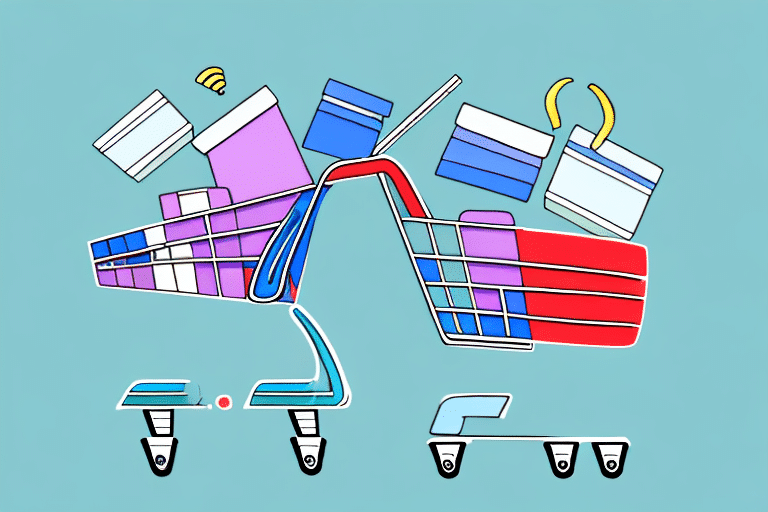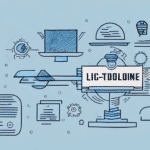Understanding the Importance of Brand Loyalty
Brand loyalty is a critical factor in the success of any e-commerce business. It occurs when customers consistently choose your brand over competitors, even when faced with cheaper or more convenient alternatives. According to a Bain & Company report, increasing customer retention rates by just 5% can boost profits by 25% to 95%. This underscores the substantial impact that loyal customers can have on your bottom line.
Customers who are loyal to your brand are not only more likely to make repeat purchases but also tend to spend more over their lifetime. Additionally, brand loyalty fosters positive word-of-mouth marketing, which is invaluable in attracting new customers. Loyal customers are more inclined to recommend your products to friends and family, amplifying your reach organically.
Moreover, during economic downturns, loyal customers are more likely to stick with your brand despite budget constraints. This resilience can help sustain your business through challenging times, providing a stable revenue stream when acquisition may become more difficult.
In a crowded marketplace, brand loyalty serves as a differentiator, making your brand stand out among competitors. It also facilitates the introduction of new products or services, as loyal customers are more receptive to innovations and expansions within your brand.
Overcoming E-Commerce Challenges That Can Damage Brand Loyalty
Addressing Product-Related Issues to Maintain Customer Satisfaction
Product quality and accurate descriptions are paramount in retaining customer loyalty. Ensuring rigorous quality control and providing detailed product information can significantly reduce the incidence of returns and negative reviews. According to a Nielsen study, 66% of consumers are willing to spend more on a product if it comes from a sustainable brand, highlighting the importance of aligning your product quality with customer values.
Streamlining Shipping and Fulfillment for Enhanced Customer Experience
Efficient shipping and fulfillment processes are critical to customer satisfaction. Delays or damaged shipments can erode trust and discourage repeat purchases. Implementing reliable logistics solutions and providing transparent tracking information can enhance the customer experience. A survey by Invesp reveals that 55% of online shoppers abandon their carts due to high shipping costs or unexpected delays. Therefore, optimizing your shipping strategy is essential for maintaining loyalty.
Providing Exceptional Customer Service to Build Trust
Exceptional customer service is a cornerstone of brand loyalty. Prompt, personalized, and effective responses to customer inquiries and issues build trust and demonstrate that you value their business. According to Salesforce, 89% of customers begin doing business with a competitor after a poor customer service experience. Investing in robust customer support can thus significantly enhance loyalty.
Simplifying Returns and Exchanges to Boost Satisfaction
Flexible and straightforward return policies can significantly impact customer satisfaction and loyalty. Complicated or restrictive return processes deter repeat business and can tarnish your brand reputation. Implementing a hassle-free returns policy encourages customers to make purchases with confidence. Research from Shopify indicates that 46% of customers consider a good return policy as a top reason to shop with a retailer.
Protecting Customer Data to Ensure Trust and Security
Data security is paramount in building and maintaining customer trust. Implementing robust security measures, such as SSL encryption and regular security audits, safeguards customer information and prevents data breaches. A IBM report found that the average cost of a data breach in 2023 was $4.35 million, highlighting the financial and reputational risks associated with inadequate data protection.
Offering Personalized Recommendations to Enhance the Customer Experience
Personalization can significantly improve the customer experience by tailoring product recommendations to individual preferences and behaviors. Utilizing customer data and analytics allows you to present relevant products, increasing the likelihood of repeat purchases. According to a Segment report, 49% of consumers are likely to become loyal to a brand that recognizes them by name, recommends options based on past purchases, or knows their purchase history.
Creating Consistent Branding Efforts Across All Channels
Consistency in branding across all channels reinforces your brand identity and makes it more recognizable to customers. This involves uniform use of logos, color schemes, messaging, and tone across your website, social media, email marketing, and packaging. A consistent brand presentation up to 80% more recognizable than non-consistent brands, according to LYFE Marketing.
Developing a comprehensive brand style guide can help maintain this consistency. The guide should outline specifications for visual elements, voice, and messaging to ensure that every piece of content aligns with your brand’s identity.
Additionally, actively managing your online reputation by monitoring reviews and engaging with customers on social media can sustain a positive brand image. Addressing negative feedback promptly and professionally demonstrates your commitment to customer satisfaction and reinforces trust.
Personalizing Messaging to Connect with Customers on a Deeper Level
Personalized messaging strengthens the emotional connection between your brand and customers. By leveraging customer data, such as purchase history and browsing behavior, you can tailor communications to meet individual preferences and needs. Personalized emails and targeted promotions can significantly enhance engagement and loyalty.
Segmenting your customer base allows for more effective personalization. By categorizing customers based on demographics, purchasing patterns, or behavior, you can deliver more relevant content that resonates with each group. According to Mailchimp, personalized emails have a 29% higher open rate and a 41% higher click-through rate than non-personalized emails.
Timing is also crucial in personalized messaging. Sending communications at optimal times, such as a customer’s birthday or anniversary with your brand, can enhance the sense of personalization and appreciation, fostering deeper loyalty.
Leveraging Feedback and Reviews to Improve Your Brand and Customer Experience
Customer feedback and online reviews are invaluable resources for improving your products and services. They provide direct insights into customer satisfaction and areas needing enhancement. Actively soliciting and analyzing feedback can guide product development and service improvements.
Responding to reviews, both positive and negative, demonstrates that you value customer input and are committed to continuous improvement. A BrightLocal survey found that 87% of consumers read online reviews for local businesses, indicating the importance of maintaining a positive review profile.
Engaging with customers through reviews and feedback also promotes transparency and builds trust. It showcases your dedication to meeting customer needs and resolving issues, which can enhance your brand’s credibility and loyalty.
The Importance of Building and Maintaining Brand Loyalty in E-Commerce
In the competitive landscape of e-commerce, building and maintaining brand loyalty is essential for sustained growth and success. Loyal customers not only contribute to consistent revenue but also act as brand advocates, expanding your reach through referrals and positive reviews.
Offering personalized experiences, such as tailored product recommendations and customized marketing campaigns, can deepen customer relationships. Utilizing data insights to understand and anticipate customer needs enables you to create more meaningful interactions that resonate on a personal level.
Exceptional customer service plays a pivotal role in fostering loyalty. Providing prompt, helpful, and empathetic support ensures that customers feel valued and supported, increasing their likelihood of returning. Additionally, ensuring a seamless and enjoyable shopping experience—from browsing to checkout and beyond—can significantly enhance customer satisfaction and loyalty.
By prioritizing customer needs and consistently delivering value, you can cultivate a loyal customer base that drives long-term success for your e-commerce business.






















